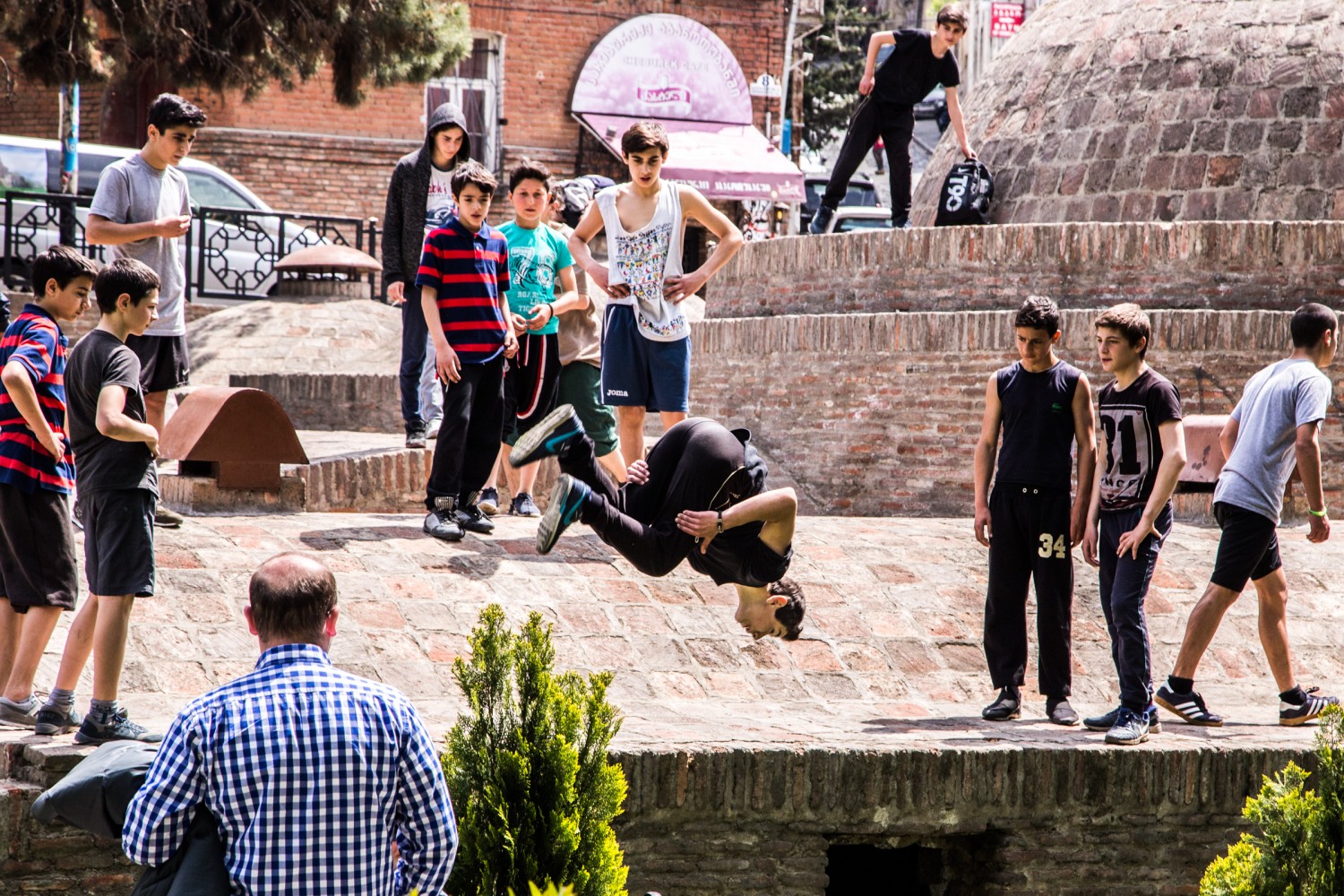What’s it really like to live in Tbilisi for a semester? Staying long-term in a city is much different from just vacationing there. You’ll need to navigate more of the practical, everyday services of the city. You will also need to budget for more miscellaneous and long-term expenses. Thus, this guide covers everything from haircuts to pharmacies and from gyms to computer repair. Its advice comes from SRAS staff on the ground in Tbilisi as well as graduates of SRAS programs abroad.
This vibrant city, steeped in history and culture, offers a unique blend of ancient traditions and modern life. As a student, you’ll discover Tbilisi’s rich past and dynamic present, from its strategic geopolitical role to its thriving arts and culinary scenes. Live with a local family, engage with diverse communities, and explore the city’s stunning landscapes. Prepare for an unforgettable educational adventure in Tbilisi, where learning extends far beyond the classroom!
A Practical Introduction to Tbilisi
Tbilisi is set in the majestic Caucasus Mountains and has a long history that has been intertwined with Russia’s, Turkey’s, and Iran’s. Georgia is a country proud of its language, its Christian heritage, and its culinary and hospitality traditions.
For students of Identity and Conflict, Tbilisi is an excellent vantage point for understanding a region that is growing in geopolitical and economic significance. For students concentrating on Russian as a Second Language, Tbilisi offers a great opportunity to connect with a large Russian immigrant community. Most adults over about forty-five in Georgia can also speak Russian fluently. In Tbilisi you will stay with a host family and thus be surrounded and immersed in the local culture.
Tbilisi is sunny most of the year, with a few grey winter months. Bring a good hat and sunscreen. Summers are hot and air conditioning is not standard. Bring light clothes and a swim suit. Winters are cold. Heat is provided by city-wide systems, but you’ll also want to come prepared to spend a lot of time outdoors, with the ability to dress in layers. You’ll also want boots with good traction at any time of year: between ice in winter as well as bumpy walkways and numerous outdoor adventures year-round, they will always come in handy!
Georgia is a conservative country so avoid tank tops or other skin-revealing clothes. Gifts for friends and/or host families are encouraged as is any prescription medication you are taking in amounts to last the duration of your time abroad. Check our packing guide for more information on preparing for your trip.
Tbilisi is friendly and fascinating. It’s surrounded by beautiful nature ready to explore.
- Georgia: A GeoHistory Study Guide (lots more information on Georgia from our sister site!)
Budgeting Basics for Tbilisi
Students in Tbilisi report spending about $40-80 a week average over the course of their stay. This covers groceries and moderate eating out, city transport, school supplies, modest weekend entertainment, and other general living expenses. Note that this guide assumes 2.7 lari is about $1.00. Prices current as of April, 2025. In Tbilisi you will stay with a host family where you will be provided with two meals per day.
Card Fees. Call your banks and credit cards! Let them know the dates you’ll be abroad, otherwise, they tend to shut them off when they appear abroad – assuming they’ve been stolen. Note that most US banks will charge fees for every transaction you make abroad. $5 and/or 3% for every ATM withdrawal, for instance, is common. Make sure you understand these fees and factor them into your budget. See our Guide to Managing Cash Abroad for more information.
Use Local Currency with Card Transactions: You will often find while abroad that, when you use your card to pay for something, you will be offered the option of pricing in dollars or local currency. Pricing in dollars may seem like a convenience, but it is always priced higher than what you will pay if you just chose local currency and let your own bank make the conversion.
Recommended Banks/ATMs: ATMs are everywhere in Tbilisi and generally trustworthy. Bank of Georgia will have the best ATM fees and rates. Some other major banks to look for are TBC Bank, Liberty Bank, and Basis Bank. Some individual ATMs will give only give you options for withdraw amounts. If you don’t like the options, you will need to look for a different ATM, preferably one from a major bank.
Flexibility: You should always plan some flexibility into your budget. There will always be expenses that you didn’t plan for – a new umbrella, a better coat, a short trip that a new friend invites you on that is too good to say no to, you get the point.
- See our Complete Guide to Managing Cash Abroad for more information.
Food and Shopping in Tbilisi
Average weekly total food spending: ~$15-25 per week
Groceries: In Tbilisi you will stay with a host family and provided with two meals per day. While the need for groceries is thus minimal when living with a host family, Tbilisi has a wide range of supermarkets and rynoks. Carrefour and Agrohub are two of the most popular supermarket chains in Tbilisi, carrying all of the essential perishable products an American supermarket would. Oftentimes these markets will serve prepared meals as well, making for a quick and inexpensive lunch. Tbilisi is also home to various rynoks offering many local products. These are great places to practice your Russian and find authentic homemade Georgian products. Talk to your host about using the refrigerator.
Cafeterias: In and around the center of Tbilisi, one can find a few Soviet style “stolovayas”. A common chain found in Georgia is called Family Kitchen, even with a location directly on Liberty Square. These are inexpensive cafeteria-style eateries, focused on providing cheap food to workers and students alike. Expect to spend $3-7 per meal.
Eating out: Fast food, although not “healthy,” is typically of a slightly higher quality in Georgia than in the States due to strict laws on artificial ingredients and food handling. For fast food or street snacks, you might spend $2-8. You will recognize many American fast food restaurants which have found a market in Georgia. A mid-range sit-down restaurant will run you maybe $7-15. Even some of the classier restaurants found in and around Tbilisi will only cost about $25 for a filling and high quality meal.
- Traditional Georgian Restaurants in Tbilisi
- International Eateries in Tbilisi
- Kosher in Tbilisi
- Thriftstore Shopping in Tbilisi
- Bookstores in Tbilisi
Transport in Tbilisi
Average transport spending: ~$15-25 per month
NovaMova language school is located only a block away from Georgia’s parliament building, and the area is well serviced by public transport.
Tbilisi’s metro system transports around 400,000 people a day between the hours of about 6am and 12am for less than a dollar a ride. Tbilisi’s busses and taxis are also cheap and reliable.
Maps: To navigate the city, the apps from Yandex Go and Google Maps prove sufficient for getting directions. It should be noted that while these apps do provide relatively reliable directions, construction, historical areas, and unexpected events may affect the feasibility of certain routes.
Public transportation: Tbilisi’s public transport utilizes a Metromoney card. You’ll use it to pay for buses, the metro and even the Tbilisi cable car. You will be taken to get a transport card as part of the orientation process. Each ride costs just 1 Lari (~$0.35) and if you use another ride within 90 minutes of the first, that ride is free. While you may choose to add more money as you use your card, unlimited cards are available for 40 Lari ($15) – 1 Month, and 100 Lari ($38) – 3 Months respectively. Cards can be purchased or refilled in any metro station, either at machines or the staffed help windows.
Taxis: Use Bolt or Yandex Taxi smartphone apps. Both use a complex algorithm to calculate the cost of each ride when you order it – as is always the case with these services, the cost can vary widely, even over the course of an hour or two. However, they are generally affordable. A ride from the airport to the center will likely run 25-30 Lari ($6-10), but taxis around the center are often not more than 15 lari ($5-6). Do not hail cabs from the street. The apps are much more secure. Connect your credit card to the account for maximum security (no bargaining or cash involved!).
More: Electric scooters can be rented around the city for a small fee. This currently about 30 tetri a minute (about 10 cents).
Marshrutki: These are vans – usually navy blue – that often duplicate city bus routes, and run further into the outskirts of Tbilisi. They are run by the city and will accept your Metromoney card, also costing 1 Lari per ride. While these are similar to buses, you will need to flag one down at bus stations as they do not automatically stop. You will also need to tell the driver to stop when you are near your destination, this can be done by saying “Aq Gaacheret” meaning “Stop” in Georgian.
Communications in Tbilisi
Average total spending for communication: $9-15 per month
See our Packing List for more information about bringing electronics abroad.
Mobile service and data: SRAS requires that students have phones that work locally while abroad. Students have several options for this.
Each option has multiple providers with multiple plans. Consider carefully the features you will actually use – usually data. Calling rates are often not as important as you can easily use WhatsApp or similar web-based communication apps. Each provider usually offers both SIM and e-SIM options. Newer phones can accept e-SIMs, usually multiple at once for added convenience.
- Get local cell service. This is usually the cheapest option if you don’t already have an international plan. SRAS will assist you getting a local number if you don’t have a number that otherwise works in Georgia. Cell service in Georgia is typically pay-as-you-go with no long-term contract. For very basic calling/texting, students can spend around $1-2 a month. A plan with unlimited data, unlimited texting and 60 minutes of calling won’t cost more than $15 dollars a month.
- Get an e-SIM. These are most useful if you plan to travel between countries while abroad. They often have roaming included whereas local or US numbers do not. You might try Airalo or one of the many other providers out there.
- Have a US-based plan with international roaming. This is often the most expensive option. T-Mobile seems to have the most favorable international plans.
If you plan to use your current phone for any of these options, you will need to make sure it is not “locked” (tied to a single carrier) and can accept a new or additional SIM or e-SIM. Contact your current provider if you are unsure.
Internet/City Hotspots/Free WiFi: Both your homestay and NovaMova language school will come equipped with sufficient wireless internet. Free wifi is available in restaurants and city-provided hotspots (like many of the universities and public transportation systems). Often, you’ll need your Georgian mobile number to register on the free networks.
Phone and Computer Repair: Tbilisi has countless computer and phone repair stores. While most are probably of decent quality, be wary. As most of these are found in bazaars and street markets, there is no consistency between locations. Use discretion and look at reviews online before going out.
Post: There is a Georgian Post office located only two blocks from NovaMova (3 Lesia Ukrainka St, Tbilisi) and is suitable for sending postcards, letters and packages alike. A postcard will cost 5.20 Lari to send to America ($2), packages will vary in price depending on weight. While sending light mail is rather affordable, packages tend to be much more expensive to send and rather slow. If you are looking for speed, DHL and FedEx both have service locations in Tbilisi.
Health and Medicine in Tbilisi
Budgets for health and medicine can vary based on student lifestyle and needs. Any SRAS student concerned about this category is encouraged to discuss it with their SRAS representative.
Water: Tbilisi’s water is safe and the city filtration system is modern. Georgians take pride in their clean water. Regardless, bottled water is cheap, usually costing 1 Lari ($0.35). Restaurants will generally only bring you bottled water at a charge. Water filters can be purchased at most larger grocery stores and many pharmacies.
Gyms and Fitness: Tbilisi has a range of gyms, although their monthly prices vary drastically. If you are living in the outer regions of Tbilisi, for example Gldani or Varketeli, you should only have to pay around 40 Lari a month (around $15-20) for a decent gym membership. In general, memberships toward the center of the city cost more on average, ranging from 130-170 Lari a month ($50-60). Vere Park and Vake Park are two public spaces that offer ample space for working out and running. For the more adventurous, skiing is widespread in the Caucasus mountains, with Gudauri and Bakuriani being a couple of the most highly acclaimed ski resorts in the region. Exercise and dance classes can be easily found online and yoga is also very popular in Tbilisi. Tbilisi is active! Some gyms in Tbilisi include: Snap Fitness (37 Sulkhan Tsintsadze St, Tbilisi), Our Gym Fitness Club (14b Alexander Kazbegi Ave, Tbilisi), Fit Line Sport (39 Sulkhan Tsintsadze St, Tbilisi), Lotus Garden (11 Apakidze St, Tbilisi).
Pharmacies: Bring a supply of needed medications with you. However, if you need something, look for the international symbol of a green cross. If looking for something specific, try looking it up on Wikipedia in English and then clicking on Russian or Georgian in the language menu on the left panel. While many American medications are unavailable in Georgia, there may be an alternative available.However, never assume that you prescription medication will be available. Again, bring your needed supply with you.
Some common pharmacies are Aversi, PSP and Pharmadepot. Most pharmacy staff speak Russian, English, or both. In addition to having a variety of medication, pharmacies also carry body care products.
Eye care: Try Roniko for eyeglasses, contacts, solution etc. They are all over the city. There is one in Galleria near the school. Torelli is another chain of optical shops in Tbilisi, and you will be able to buy contacts or glasses if need be. There are many smaller shops scattered around Tbilisi which provide the same service, generally for cheaper. These are found in bazaars like Dezerter Bazaar, although their quality may not be the best.
Medical Services: General care is available in English at American Medical Center and MediClub.
Personal Grooming and Hygiene
Washing + Drying: Your homestay will help you with cleaning your clothes. While almost all apartments in Tbilisi have washing machines, they are often tiny and not as powerful as the American equivalents. Also, while many American apartments and homes now use clothes dryers, these are not widespread in Tbilisi and greater Georgia. The use of a clothesline is the most common way to dry clothes in Tbilisi, especially if you are living in an apartment.
Dry Cleaners: There are dry cleaners in Tbilisi, although they are not widespread. Yandex or Google Maps will be your best option for finding these locations.
Haircuts: There are many places offering haircuts at relatively reasonable prices ($10 for men; $25-30 for women). While there are many to choose from, using Yandex or Google maps to find places near you may be the best option. You might also want to look up how to talk about haircuts in Georgian or Russian before heading out!
Hygiene: Deodorant, and toothpaste – in brands you are likely to recognize – run about $3 per package. Shampoo, conditioner will be $6-10. Feminine hygiene products are around $4 per box.
Culture and Entertainment
Entertainment and incidentals are the most variable expenses you’ll face. For some great local listings in Tbilisi (in Russian, Georgian, or English) on what’s going on, refer to TKT.ge.
Museums: The most well known museum in Tbilisi is the Georgian National Museum. Tbilisi is also home to The National Gallery (an art museum) and The Art Palace. Some museusm will accept international or foreign student IDs, but not all. Always try to show it for the student discount, but most museums are quite affordable (under $10) even without the discount.
Performances: A ticket to a movie will run about $5-12. Rock concerts can run from $8-infinity. Theater tickets can run about $3-200. Check out TKT.ge for tickets of all sorts of events all over the city.
Nightlife: Bars in the center will charge around 5-10 Lari per beer, and maybe 10-20 Lari for a cocktail or wine. Many of the trendy clubs will charge a cover – often anywhere from 30-60 Lari.
Charitable Giving and Volunteering
Volunteering: Some SRAS students have, in their free time, volunteered with church groups and charities on the ground in Tbilisi. You can find a list of charities and NGOs at City24.ge.
Travel from Tbilisi
You can find several student-reviewed independent trips on this site. See more of the country and wider region and meet more of the people while you have the chance to do it quite inexpensively.
There are marshrutki (scheduled vans) that can get you to nearly all points in Georgia depart from Didube Avtovokzal. The cost depends on distance, but very reasonable, from $3-5 for a nearby city (i.e. 1 hour) and up to $35 for something as far as Batumi (5 hours) or Kazbegi. No need to make advance reservations, just show up. Usually there are depatures around 9am and then 1pm.
Trains also an option and quite affordable, but have limited availability. Tickets can and should be purchased at tkt.ge in advance using a credit card.
There is also a service called gotrip.ge which is basically a taxi that can take you longer distances. They have really clean cars as well as reliable and friendly drivers. Prices are reasonable and you can select what language the driver speaks and name your location. This is a good service and, especially if you are traveling with 1-3 other friends, can be a very affordable option.
Let SRAS know EVERY TIME YOU LEAVE TBILISI! This is for safety, but also because there may be registration or visa issues involved in your trip that we may need to advise you on.
Find Out More About…
- Georgian Holidays
- Georgian Cuisine
- Georgian Language
- Georgian Geopolitics, Economy, etc
- Georgian History
- Georgian Pop Culture
- Museums in Georgia
Guides to Other Cities
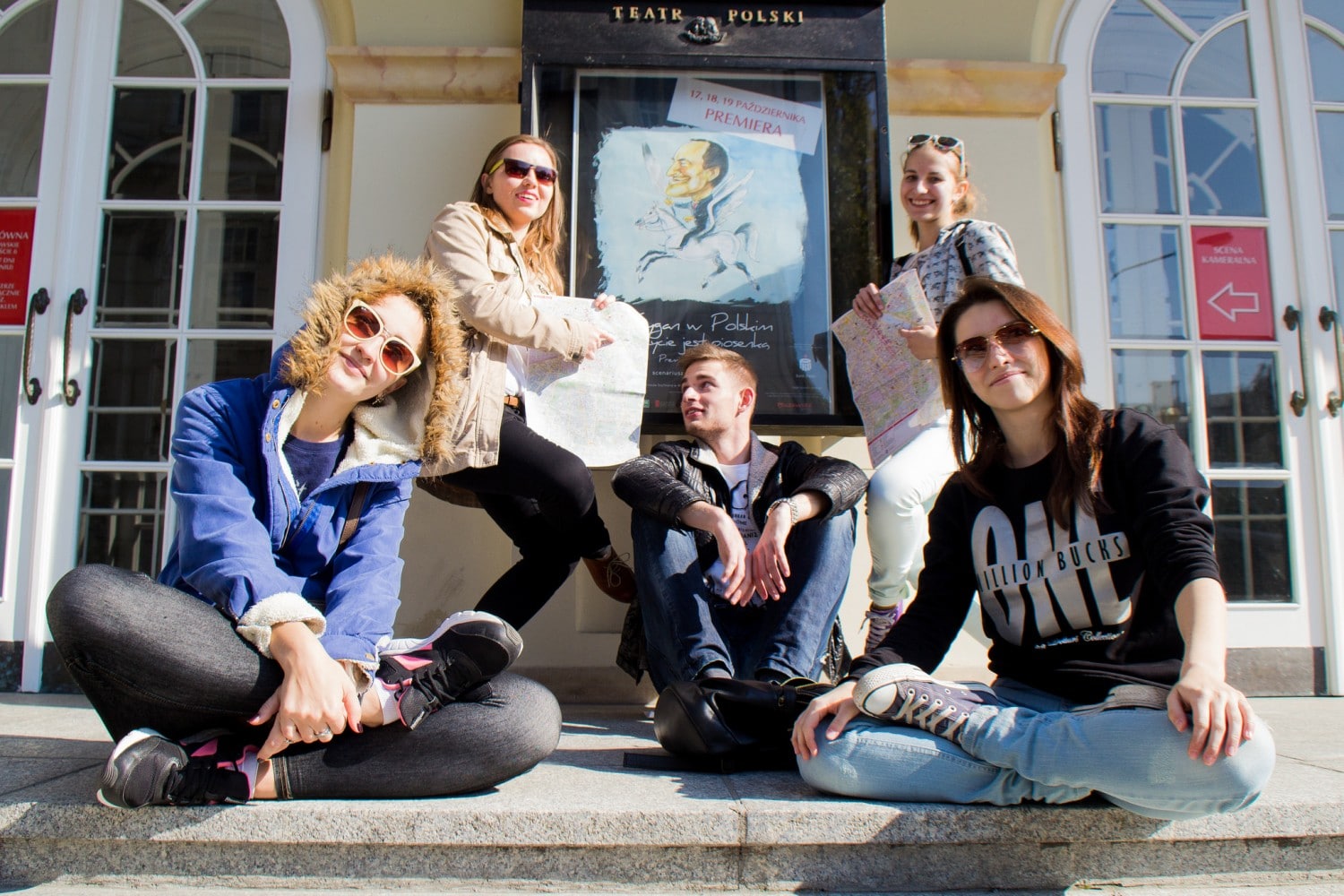
SRAS Guide to Living in Warsaw
What’s it really like to live in Warsaw for a semester? Staying long-term in a city is much different from just vacationing there. You’ll need to navigate more of the practical, everyday services of the city and budget to include more miscellaneous and long-term expenses. Thus, this guide covers everything from haircuts to pharmacies and […]
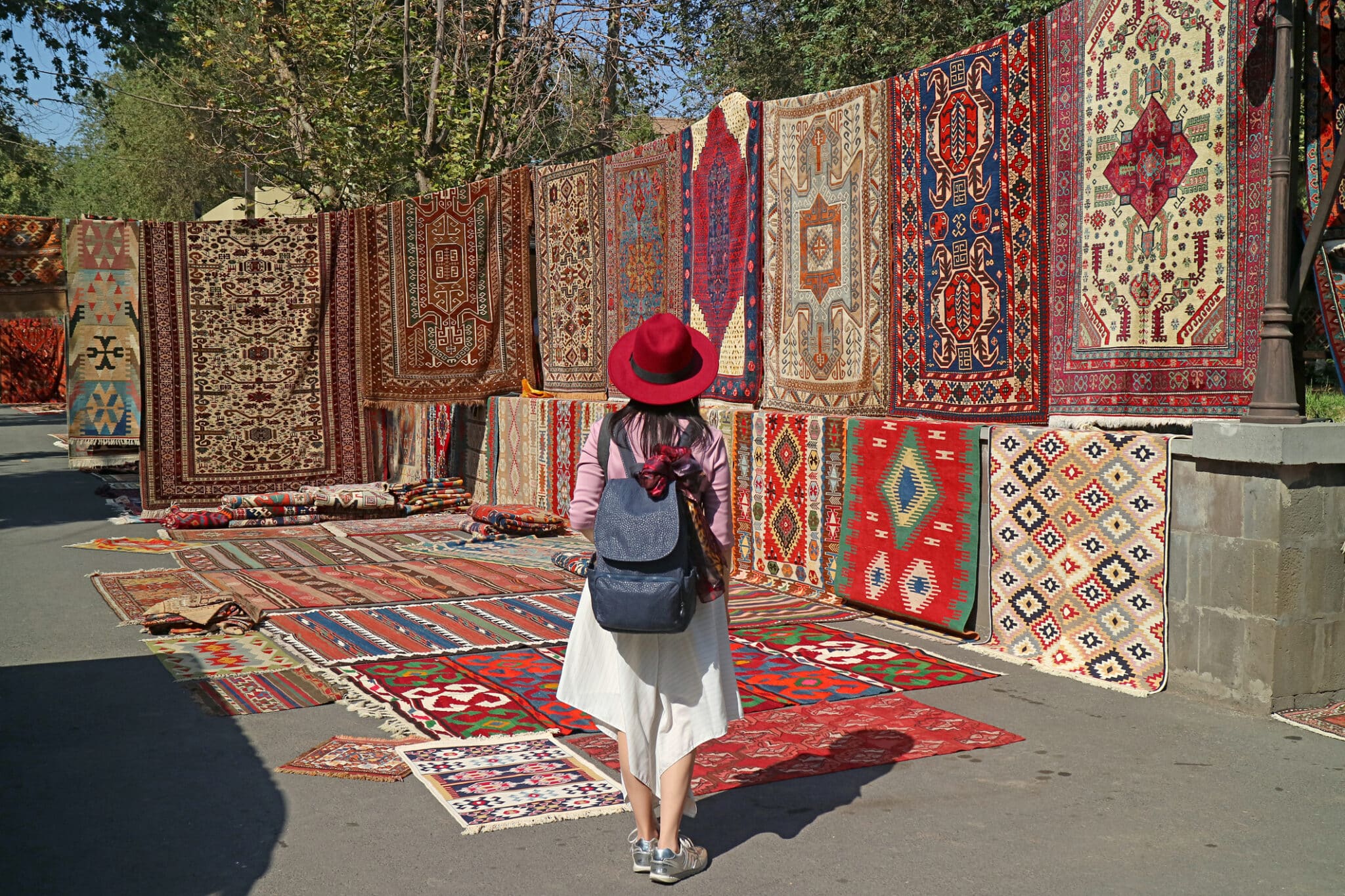
SRAS Guide to Living in Yerevan
What’s it really like to live in Yerevan, Armenia for a semester? Staying long-term in a city is much different from just vacationing there. You’ll need to navigate more of the practical, everyday services of the city and budget to include more miscellaneous and long-term expenses. Thus, this guide covers everything from haircuts to pharmacies […]
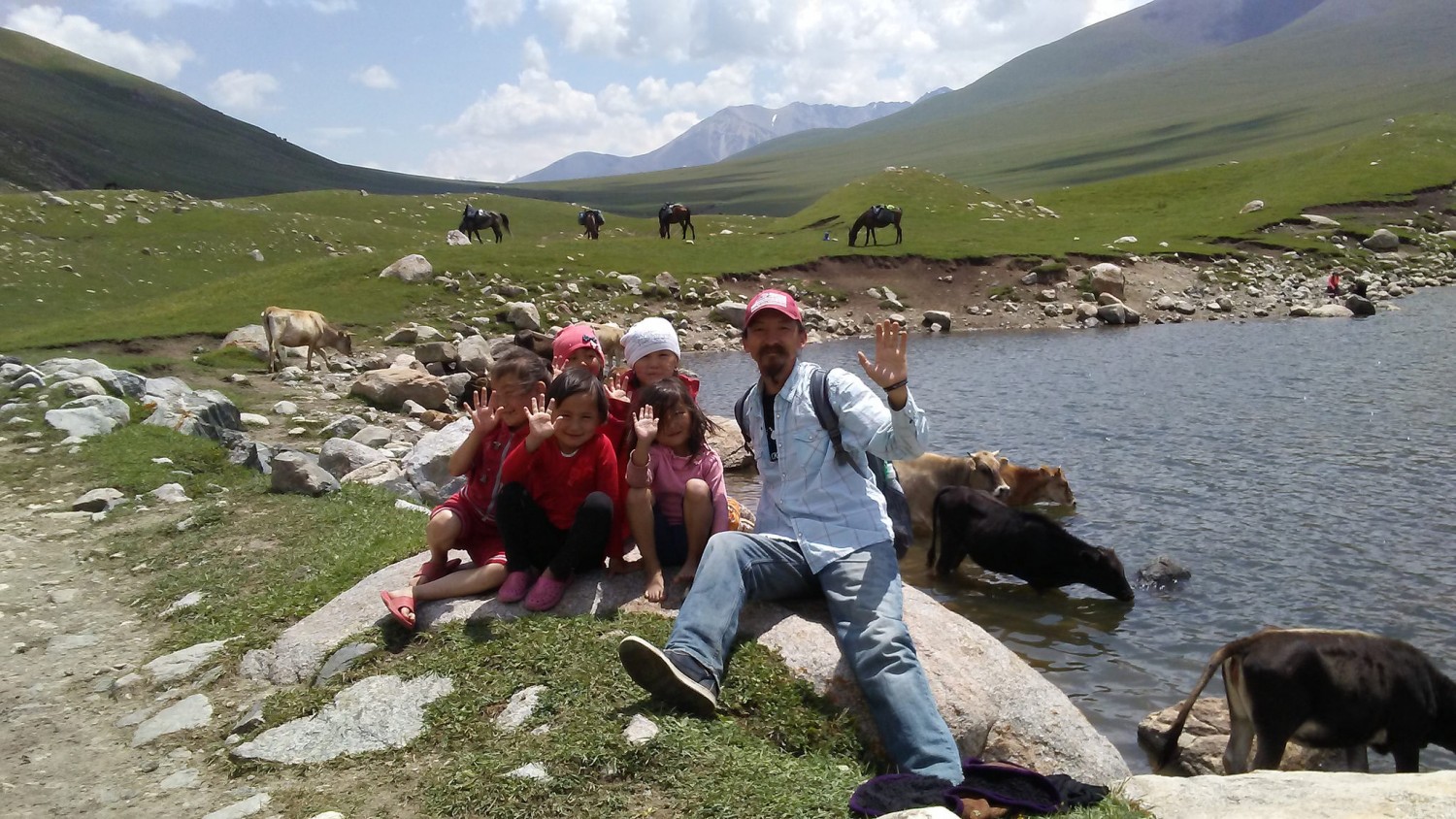
SRAS Guide to Living in Bishkek
What’s it really like to live in Bishkek for a semester? Staying long-term in a city is much different from just vacationing there. You’ll need to navigate more of the practical, everyday services of the city and budget to include more miscellaneous and long-term expenses. Thus, this guide covers everything from haircuts to pharmacies and […]
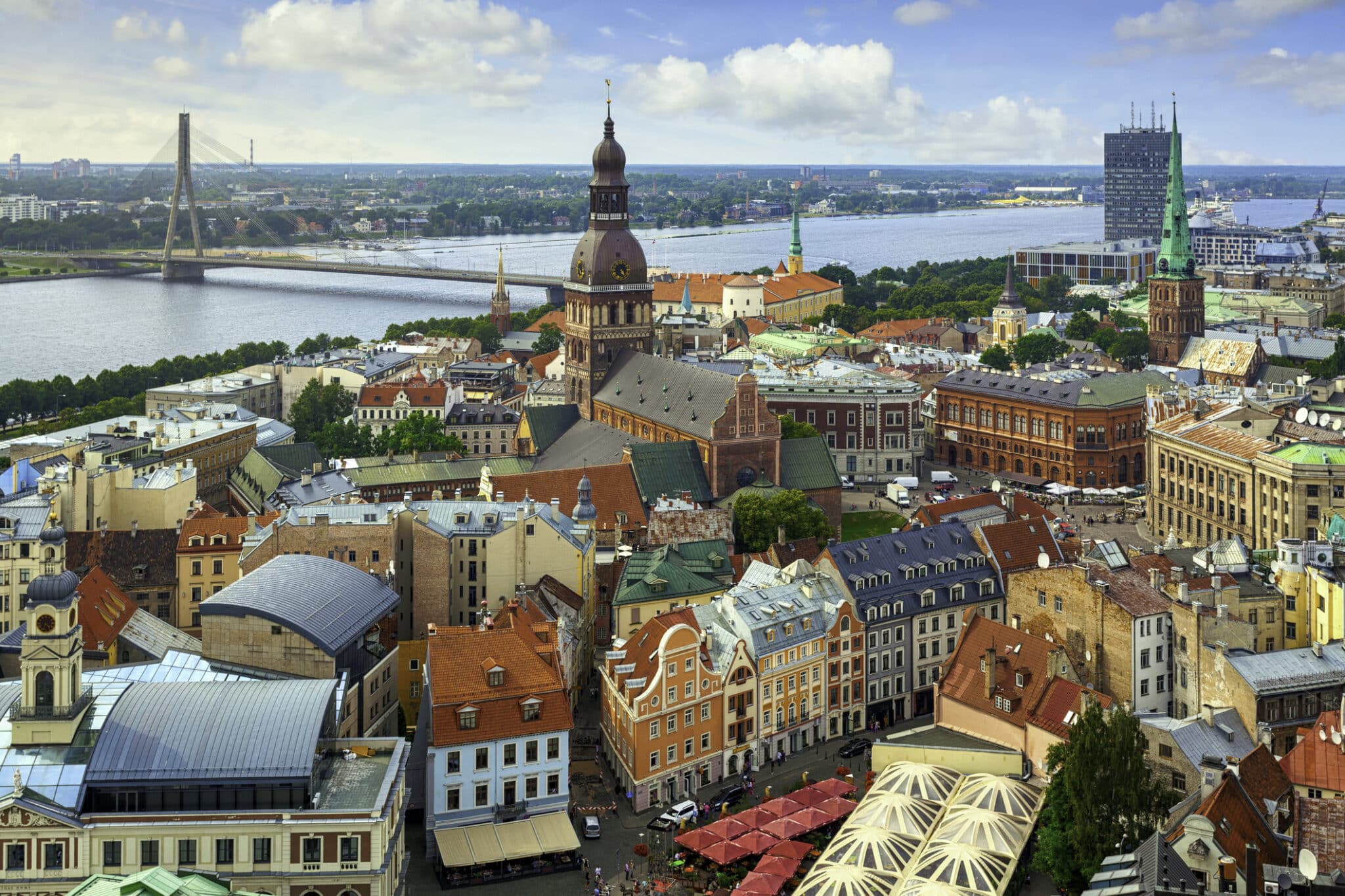
SRAS Guide to Living in Riga
What’s it really like to live in Riga, Latvia for a semester? Staying long-term in a city is much different from just vacationing there. You’ll need to navigate more of the practical, everyday services of the city and budget to include more miscellaneous and long-term expenses. Thus, this guide covers everything from haircuts to pharmacies […]

